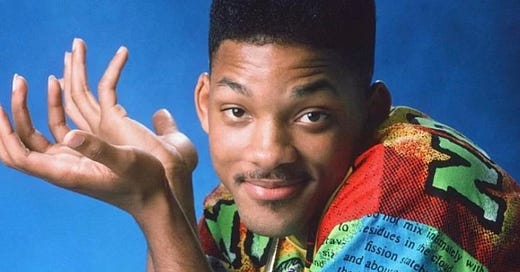The Twitter Files are not all that surprising and I guess ultimately I don't really care about them
Standing on the cusp of something better, hopefully
I get that I am supposed to be excited about the “Twitter Files,” these big revelations from Elon Musk showing how Twitter engaged in systematic censorship against users—particularly conservative users—that expressed unorthodox/contrarian opinions on a wide variety issues. I myself am very conservative and in the earlier days of the pandemic I was doing a lot of accurate writing on COVID for a national news outlet and much of it ended up being censored by Twitter because it wasn’t in line with what Fauci wanted at the time or whatever. So it feels like this stuff should be a big deal to me both personally and professionally.
But it’s not. I’m sorry, I just can’t get all worked up over it. For starters, there’s not really anything in these “files” that we didn’t know already. We knew they were blacklisting people dissenting from the mainstream COVID narrative. We knew they were blacklisting Libs of TikTok. We knew they were manipulating the conversation on Twitter to decrease conservative visibility and ensure the progressive viewpoint was the dominant one. We knew they basically made up highly specialized rules on the spot in order to ban Trump after Jan 6 (they claimed he was the equivalent to “Hitler” and “the leader of a terrorist group”). I guess we technically didn’t know the FBI was working very closely with Twitter to censor and suppress voices on the site. But we kind of knew it, right? Did anyone’s jaws really drop learning that? Who’s the one guy who was surprised by that? Probably Donald Trump, honestly.
So none of that felt like a revelation. But beyond that it also just felt sort of underwhelming and uninteresting in a distinct sort of way. I think that’s mostly because Twitter itself feels boring and irrelevant at this point. I know the popular consensus is that Twitter is still a major player in the media/tech world, that the media cycle rises and falls depending on what happens on it, that it still commands this oversized and indispensable influence on so much of what happens in the world. I think that most of the people who believe that are just the ones who spend a ton of time on Twitter. To me Twitter seems kind of terminally useless and hollow, like a high school at 5:17 p.m. on the Friday that everyone got out for summer vacation. It feels like a nearly 20-year-old social media company in an era where even the term “social media” has become passé and outmoded, to say nothing of social media itself. It feels over.
You can argue, not unreasonably, that Twitter still has some utility left in it—that it’s a useful conduit for information, for connection, for real-time global reaction to important and history-making events. I mean, I guess it could be all of those things…maybe. Sort of. What Twitter feels like to me is like 2% useful, meaningful information, then like 86% people angrily screaming at each other about useless stuff, and then the remaining 12% is people arguing about Twitter itself, about the censorship and the algorithms and everything, and honestly that just sort of dovetails into the 86% so it’s sort of the same thing. Are you telling me there’s nowhere else we can get that 2%? That seems unlikely.
I think it was always meant to be this way, because the promise of social media has always sort of been a self-destructive one. The intent of social media was to give everyone on the planet the opportunity to share their thoughts about everything with everyone else on the planet in real time. At the outset that sounded like a decent and fun idea. But in practice it’s a very bad idea, or at least a really lame one, because when millions of people are firing from the hip and writing whatever pops into their heads, particularly about inflammatory and/or complex topics, you end up with this sort of brutal cacophony of anger, incoherence, fear, megalomania, paranoia, hate, vitriol, and what Freddie deBoer calls a “mask of irony” that kind of hangs over everything like an overlay on a science-class projector.
I mean, look, if you were to propose a system for developing great ideas, encouraging careful thought, fostering common understanding between disparate groups, and making everyone generally smarter and more compassionate and more thoughtful, would your proposal sound like, “Forum where communication is limited to 240 characters and millions of people are just immediately writing whatever’s on their minds with no forethought, no research, no editing and no filters?” Or would it look like, you know, something radically different from that?
I should like to think that the age of social media is coming to a close, that the odd and entertaining spectacle of a billionaire dropping $44 billion on a microblogging website is one of the last great demarcators of this era, and that something better is on the horizon—a world where people think and speak more carefully, where there’s less stress and less crippling paranoia about virality and feeds and threads, where the Internet is on track to reach something resembling its original potential as a great nexus of information rather than a forum where people just sputter at each other for 23 hours a day. At times that dream seems almost impossible to me. But then I see things like the “Twitter Files” and I realize I just do not care about any of that at all, even slightly, and I think: Maybe most people feel that way about it. I think they do. That’s a good thing.



